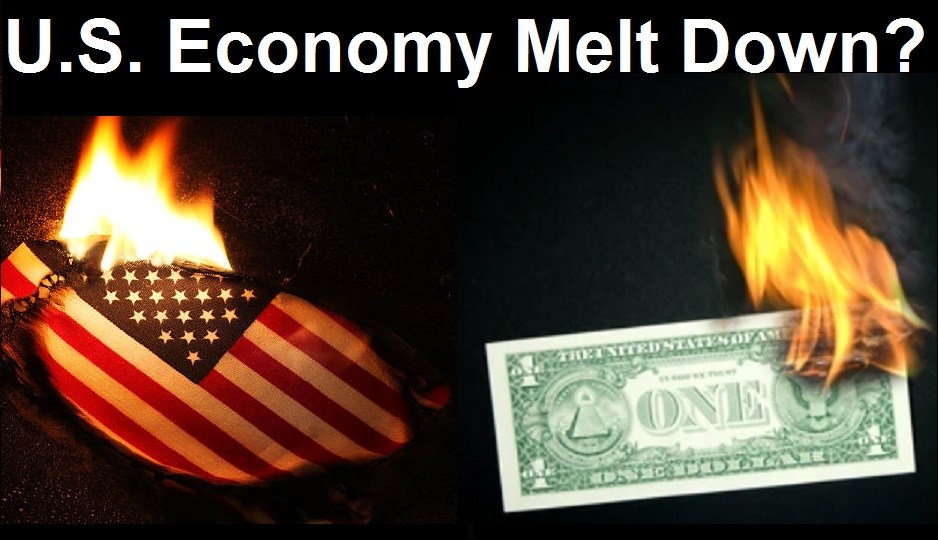by Brian Shilhavy, Health Impact News:

While I have been reporting on the Big Tech crash that started accelerating in 2022 for over a year now, others in the financial sector are finally beginning to see where the current AI hype is leading the U.S., and using such words as “apocalypse” in terms of what is going to happen when this AI bubble (which almost ALL economists now admit is a real thing) bursts.
ZeroHedge News reported this week that Goldman’s head of research has apparently “seen the light” when it comes to the AI bubble, and “is downright apocalyptic on what the current AI bubble will lead to; think dot com bubble on steroids” and that it “will be the biggest bubble in history.”
TRUTH LIVES on at https://sgtreport.tv/
Goldman’s Head Of Research Crucifies The “AI Bubble”: Not One Transformative Application Has Been Found
Rallying markets like to shoot, or in this case buy, and ask questions much later or never – and certainly not until it is far too late, everything has crashed, and the fingerpointing and crying are all that’s left, at which point the only question on the market’s mind is why did nobody ask any questions earlier.
The latest example of this of course is the
3D TV,fake meat,virtual reality,the metaverse,blockchain, chatbot (aka AI) bubble, where a handful of supergiant firms are adding hundreds of billions in market cap every single day because of some algo glitch where the market believes their revenue growth is virtually unlimited because somehow other companies have trillions and trillions in capital spending power which they will – in a zero sum circle jerk (Editor Note: this called a “Ponzi” scheme) – give to the five biggest companies in the world, making them even bigger in the process.Luckily, almost two years after ChatGPT 3.5 was first released and almost a century after modern AI first emerged, some are finally starting to ask questions.
And in the latest Top of Mind note from Goldman, the bank goes actually asked the question whose negative response would lead to an immediate market crash: is there too much spending on AI, and too little benefit?
While the Goldman note (if not its head of research who comes out about as pessimistic on the topic as is possible) does not provide a definitive answer (and why would it seek to burst a bubble that will result in billions in M&A, IPO and follow on and debt issuance fees) it does share a handful of interviews with pundits on both sides of the aisle.
But more importantly, it does assert that there is virtually “nothing to show” in terms of actual, tangible results on the $1 trillion that tech giants are set to spend on AI capex in the coming years.
Worse, Goldman’s head of equity research, is downright apocalyptic on what the current AI bubble will lead to; think dot com bubble on steroids.
Here is how Goldman’s Allison Nathan, author of the biweekly Top of Mind note, frames the prevailing AI dynamic:
The promise of generative AI technology to transform companies, industries, and societies continues to be touted, leading tech giants, other companies, and utilities to spend an estimated ~$1tn on capex in coming years, including significant investments in data centers, chips, other AI infrastructure, and the power grid.
But this spending has little to show for it so far beyond reports of efficiency gains among developers. And even the stock of the company reaping the most benefits to date — Nvidia — has sharply corrected. We ask industry and economy specialists whether this large spend will ever pay off in terms of AI benefits and returns, and explore the implications for economies, companies, and markets if it does, or if it doesn’t.
Among the many pundits Nathan spoke to, the most notable was Daron Acemoglu, Institute Professor at MIT, who’s very skeptical. He estimates that:
only a quarter of AI-exposed tasks will be cost-effective to automate within the next 10 years, implying that AI will impact less than 5% of all tasks.
And he doesn’t take much comfort from history that shows technologies improving and becoming less costly over time, arguing that AI model advances likely won’t occur nearly as quickly—or be nearly as impressive—as many believe.
He also questions whether AI adoption will create new tasks and products, saying these impacts are “not a law of nature.”
In short, not only will the hundreds of dollars spent on CapEx end up being a huge waste of capital, but the trillions in market cap gained by the Big 7 will be the biggest bubble in history. (Full article. Premium subscription needed.)
While AI has sucked up all the capital in the U.S. economy for the past year and a half to create this economic apocalypse that now awaits us, the true extent of the crash of Big Tech goes far beyond just chat bots and LLM AI.
Indeed, when the history books are written in the future about the collapse of the Great American Empire, chief among its causes will be our over-reliance on technology and the false Darwinian belief system that whatever humans can do, machines and technology can do better as they evolve.
This reliance on technology started in the 1800s when America abandoned using natural plants, herbs, and things in creation for healing, and when traditional methods of healing, such as homeopathy, were banned in favor of laboratory-produced pharmaceutical poisons, starting with vaccines, in the false belief that man’s technology could eliminate human disease. See:
American Medical Revolutions: How the AMA Took Over America
Today, the field of “biotech” still earns $trillions while Americans get sicker and sicker, creating a highly medicated society addicted to their products, which are now the #1 cause of death in the U.S. See:
Read More @ HealthImpactNews.com



